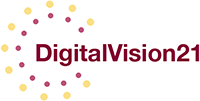Digital banking
Banking apps differ fundamentally from other finance sectors, with unique customer motivations and usage patterns. While the customer digital experience remains a key challenge, despite some dissatisfaction many consumers stay with their banking apps due to the hassle and cost of switching. In 2023, the focus for banking product owners is understanding the reasons behind customer churn and implementing strategies for better adoption and retention. Collecting and responding to feedback is considered pivotal for ongoing customer retention.
Digital banking
In 2023 Commerce Bank launched a new mobile app that offers customers the option to select a banker based on their financial needs and chat with them for advice. This app embodies the bank’s brand values of simplicity, human connection, sincerity, and strategic focus. Their marketing messages center around meeting customers’ financial needs, from cash-flow management and investment strategies to financial education. The bank emphasizes high-touch customer service and deep relationships. To help achieve these goals the bank relies on first-party data to develop personalized and timely messages based on customer behavior.
Payments
The recent launch of FedNow represents a significant opportunity for banks, mirroring the success of instant payment systems globally. Instant payments can address traditional payment method shortcomings. The FedNow service boasts low processing fees, immediate settlement, and improved liquidity which particularly resonates with a younger generation expecting real-time service. Banks stand to benefit from FedNow’s offerings by offering improved merchant services and other attractive business services such as payroll, insurance payouts, and bill payments. Consolidating services under one provider can result in interoperability and economies of scale elevating user experiences, along with the ability to gain access to valuable transaction data to support personalized product recommendations.
Payments
Despite the myriad of payment options available today, debit cards remain the dominant choice for Americans when making purchases. According to J.D. Power research, 78% of consumers have used debit cards for transactions in the past 90 days, closely followed by cash at 74%. Other methods of payment include credit cards (66%), digital wallets (36%), gift cards (33%), and buy now, pay later options (28%). J.D. Power’s research analyzed the types of consumers who use debit cards, categorizing them based on behavior rather than traditional demographic metrics. Some of the main categories include Budgeters (prioritize not accumulating debt), Borrowers (use credit cards and buy now, pay later options, but prefer debit for speedy transactions), Minimalists (choose payment methods for convenience and habitually stick to them), and Experimenters (early adopters of technology but still use traditional methods). Banks and credit unions could benefit from tailoring their debit card offerings to cater to these consumer types, with the overarching message being that financial institutions should take a segmented approach rather than a one-size-fits-all strategy when designing debit card products.
Big tech
The director of the Consumer Financial Protection Bureau (CFPB) recently criticized the strong influence Apple and Google have over contactless payment options. In a speech at the Philadelphia Federal Reserve Bank’s fintech conference, Chopra voiced concerns over the blurring lines between digital commerce, lending, and payments by tech giants which could challenge the separation of banking and commerce in the U.S. The main focus is on the heavy use of Apple and Google smartphones for payments via near-field communications (NFC). Apple restricts third-party apps from accessing its NFC technology for tap-to-pay payments, which must go through Apple Pay, while Google allows competing mobile wallets on its phones. The CFPB plans to propose rules to increase consumers’ rights over their personal financial data, advancing open banking in the U.S.
Payments
Amazon Pay is introducing two distinct BNPL programs for different customer segments in preparation for the holiday season. One program enables retailers using Amazon Pay to provide their customers with Affirm’s BNPL services. This allows customers to select from “pay in four” 0% interest plans or longer-term installment plans with a fixed interest rate. The other program is tailored for Prime Visa and Amazon Visa credit cardholders. These cards, provided by JPMorgan Chase, offer benefits for Amazon-related purchases. Now, they will present a new BNPL option with 0% interest, named Equal Pay. These BNPL initiatives demonstrate that the BNPL model is not just a fleeting trend but is transitioning to a consumer expectation. Other payment service providers are expected to rapidly adopt BNPL and installment payment solutions in response, especially with the economic strains consumers are currently facing.
AI/ML
The banking industry is in the initial stages of exploring the potential of generative AI models like ChatGPT to revolutionize financial services. Pilot projects are being undertaken to assess its application in customer experience, back-office automation, risk management, and product innovation. One expert views a key use case for AI as being in the delivery of hyper-personalized customer service. He envisions creating individual AI models for customers, leveraging their transaction history to offer bespoke financial advice. Unlike traditional chatbots, AI systems can adapt and offer more personalized advice as they interact more with users. There’s also vast potential in using AI for operational efficiency. Tasks like account openings, loan processing, data transfers, and report generation can be optimized using AI, eliminating manual procedures. And AI can also be used to empower employees, enhancing their capabilities rather than replacing them. However, the deployment of AI isn’t without challenges, including potential biases in AI recommendations. While it offers numerous advantages, its hasty deployment without appropriate checks could be ill-advised.
